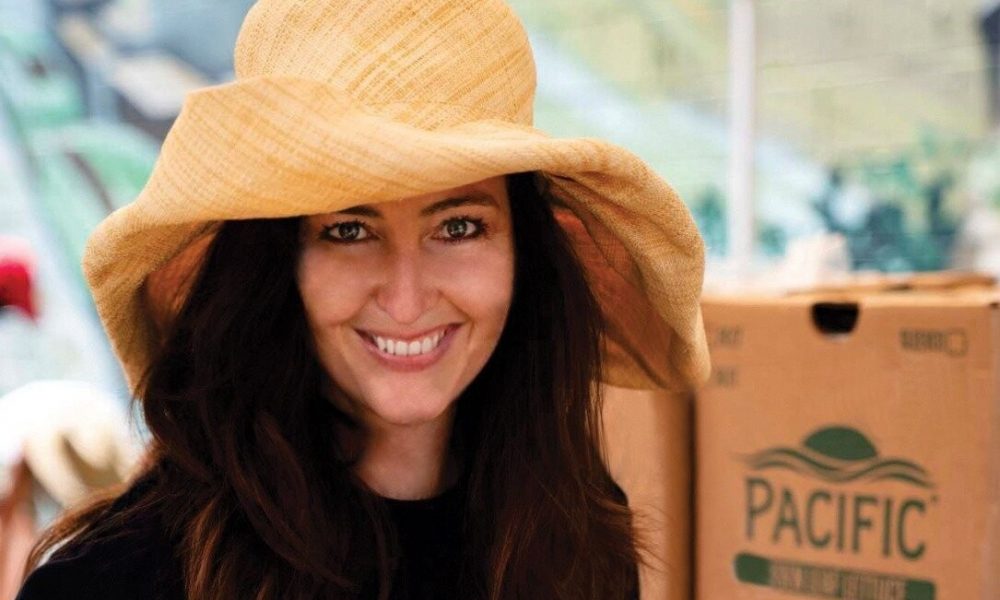

Today, we’re thrilled to have Martina Gallagher share the inspiring journey behind the powerful collaboration with FoodCycle LA, a prominent food recovery umbrella organization feeding those food insecure:
As the shadow of inflation looms over the nation, an alarming number of Americans grapple with the harsh reality of food insecurity, affecting nearly a quarter of adults. This issue has become increasingly prevalent as the cost of groceries skyrockets and housing expenses surge, leaving many struggling to afford the basic necessity of putting food on their tables. An Unveiled Reality the situation in Los Angeles reflects this national crisis, as recent findings expose that one in four residents face food insecurity. USDA reports suggest the problem might be even more pervasive than officially documented. The disheartening truth is that while millions worldwide suffer from hunger, an excessive amount of food is discarded.
Martina Gallagher, a former TV producer and segment director, and dedicated health educator, embarked on a journey that led to the manifestation of the food recovery umbrella organization known today as FoodCycle LA. A movement dedicated to combating food waste and alleviating food insecurity in Los Angeles. Her remarkable journey began right before that time when many were hiding during the pandemic. Martina sought a way to contribute meaningfully to her community. She highlights the alarming reality: “Major holidays like Thanksgiving and Christmas/Hanukkah generate substantial food waste. Annually, American families discard approximately 305 million pounds of food from Thanksgiving dinner alone. During the holidays, when many are reluctant to work or volunteer and non-profits are less inclined to handle food, we’ve observed a surge in waste. Recognizing this issue, I strategically positioned FoodCycle LA as a dependable solution, ensuring that stores can consistently rely on us for pickups during these crucial times. During the formative years the challenge extended beyond organizing timely pickups citywide; it also included coordinating distributions and informing communities in need about the surplus food availability. It’s a continuous balancing act, and it’s worth mentioning that none of us received overtime pay due to limited funds; most volunteered. This truly reflects the beautiful community effort that has been possible, thanks to our tightly built network.” Gallagher continues: “In the United States alone, a staggering 5 billion bananas are discarded every year. This waste extends far beyond fruits; it also involves an excessive amount of water, tallying billions of gallons. This statistic serves as a compelling example of the immense global problem of food wastage. Equally concerning is the squandering of meat and dairy products. Combining ripe bananas and milk, whether as they are or blended into a shake, creates a quick and highly nutritious snack that’s readily available and could feed so many starving.”
Martina’s Impact and Vision: A Humanitarian Network:
Martina Gallagher’s steadfast dedication to addressing this issue led her to join forces with FoodCycle LA in 2019. Her vision aligned seamlessly with that of Founder and Executive Director Nancy Beyda.
Serving as a driving force, Martina played a pivotal role in broadening FoodCycle LA’s impact, establishing the guidelines, and shaping the current landscape of food recovery in Los Angeles. Martina’s initiatives drew in and trained a committed force of over 500 food recovery volunteers. She spearheaded a comprehensive training program, establishing partnerships with over 350 generous donors and 400+ non-profit organizations. This strategic approach meticulously streamlined the execution of food distribution and rescue operations all over Los Angeles.
Over the past four years, her hard work and commitment led to an extensive food rescue network throughout Los Angeles and the rescue of more than 18 million pounds of perfectly edible food, preventing it from ending up in landfills.
Martina: “I forged partnerships with stores to prevent edible food from going to waste and established connections with non-profits to ensure this abundance in donations reached those in need. When traditional outlets like schools and churches closed during the pandemic, I tirelessly sought new avenues to distribute surplus food. Navigating with just one rented van and without refrigeration, I utilized my personal Honda Accord for pickups in the initial year, maximizing its space and conducting multiple runs daily until Food Cycle LA acquired a dedicated electric van, allowing me to amplify the impact of my work. As a natural problem solver, I organized food distributions across town, emphasizing immediate perishable item distribution. Despite starting with no volunteer base, I leveraged my networking skills to connect with hundreds of volunteers. Utilizing their SUVs, the Westside food recovery, led by mothers seeking respite, grew significantly. It brought me immense joy to witness the willingness of numerous individuals who were ready to lend their vehicles and extend their network support to bolster this movement.
A Legacy of Impact
The impact of Martina’s journey extends beyond rescuing food. It has contributed to building climate resilience, engaging the community, and providing outreach to underserved populations.
Martina: “Under my leadership, in collaboration with the indispensable support of A Call 2Peace Foundation as well as Dwell Church during the pandemic, we intricately wove a network of interconnected channels throughout Los Angeles. This partnership was especially crucial in FoodCycle LA’s early stages of network establishment. As FoodCycle LA primarily functions as a connector between donors and non-profits, not directly distributing to individuals, ‘A Call 2 Peace Foundation’ and ‘Dwell Church’ played a pivotal role in bridging that gap. Their contribution alone ensured that over 5 million pounds of rescued food, saved from landfills, reached those in need efficiently and effectively during the pandemic.”
Martina: “Thanks to these established channels, a ripple effect commenced, attracting like-minded individuals to the food recovery movement. This organic growth laid the foundation for FoodCycle LA’s non-profit partnerships, spreading through word of mouth and garnering widespread support. Key collaborators, including Nourish LA, Peace, Health and Happiness Connection, Venice Food Drive aka Westminster School, Mark Twain Middle School, UCLA students via UASRA, Golden Heart, Church of Jesus Christ of Latter-day Saints, Feeding Families Santa Monica, Goethe International Charter School, Beethoven School, Saint Marks Food Pantry, Zawadi Cultural Collective, Grace Diner, SMC, Aware Movement, Let’s Be Whole, and Grassroots Neighbors, were pioneers in developing creative solutions for free food distributions during a time when social distancing was crucial. Post-pandemic, with the resulting inflation, there was a surge in requests for food donations. Church and school distributions have now become the norm again, with entities like Goethe Int Charter School and A Call 2Peace merging their food insecure communities with Vintage Faith Church, emerging as major players in free food distributions on the westside of Los Angeles today.”
Recognizing that a significant portion of our community—those who are incapacitated, unwell, or lack the means to reach major distribution centers—struggles to access essential resources, Martina devised a solution. She emphasizes, ‘While neighbors extend a helping hand, the weight of the need exceeds what one person can bear alone. This is where the incredible value of volunteers becomes evident. Their dedication and tireless efforts drive the success of many distributions, facilitating the regular delivery of food boxes to those most in need. This human network has proven invaluable in extending essential aid to those facing adversity.’ During the COVID pandemic, a time of fear and social distancing, this sense of community and support has been a lifeline for many, providing not just food but also a reassuring presence and solidarity when it’s needed most.
From orchestrating distributions in the early days with limited resources, using her personal vehicle for pickups, to building a volunteer base primarily composed of mothers, Martina played a crucial role in shaping FoodCycle LA’s growth over almost four years. Her commitment led to the evolution of the organization, transitioning from reliance on volunteers to employing van drivers and establishing partnerships with major health food store chains. Beyond food recovery, Martina actively addressed the environmental consequences of food waste, emphasizing the need to honor the sacrifices of animals used for consumption. Her efforts extended to building communities focused on sustainable practices, such as collecting and returning glass bottles to stores. Throughout her journey, Martina’s impact resonates not only in the reduction of greenhouse gas emissions associated with food waste but also in fostering a united community striving for positive change.
Martina: “Every discarded item serves as a stark reminder of how our daily habits can yield far-reaching consequences. For instance, pouring a liter of milk down the drain is equivalent to wasting over 1,000 liters of water. Similarly, discarding one kilogram of beef translates to squandering 25,000 liters of water used in meat production. Smaller grocery stores discard high-quality milk in glass bottles to avoid losing the bottle deposit. I have actively built specific communities to address this issue, aiming to provide quality milk to children while collecting and returning the empty bottles to the store. It’s the extra effort that many are unwilling to make. Cows are separated from their calves to produce milk for us, and animals sacrifice their lives for our meat consumption. In return, our responsibility is to find ways to honor their sacrifices and the gifts they provide.”
The world produces enough food to feed its entire population, and yet, in 2023, nearly 10% of the global population is undernourished, as reported by the World Bank. It’s a sobering reality that starkly contrasts with the food waste rampant in more prosperous regions.
Martina: “I spearheaded training initiatives for our donors, shedding light on the transformative shift from traditional waste practices to sustainable food recovery. The impact of my work resonates in the transformed appreciation and allocation of surplus food for those in need today. Together, the FoodCycleLA team successfully rescued over 18 million pounds of edible food in just 4 years. This collaborative effort generates a ripple effect, actively contributing to the fight against food waste and insecurity, steering us toward a more secure and nourished future.”
Martina: “My unique approach involved urging donors to provide all perishable items they typically discard, especially those nearing their expiration dates. Initially, donors were surprised, as the concept of salvaging items close to expiration wasn’t widely understood, and concerns about people getting sick were repeatedly voiced. In the early stages, we strategically organized distributions around non-profits willing to assist in picking up and delivering food to those in need. Faced with the challenge of not having refrigerated trucks, or any trucks at all, in the Los Angeles heat, I positioned distributions near food pickup points. This allowed volunteers with SUVs to quickly drop off and move on with their day, ensuring that rescued food, susceptible to spoilage, could promptly reach the end user’s hands. Through my longstanding relationships and efforts, particularly with key individuals in meat departments who provided essential insights, we’ve successfully expanded our distribution to include a diverse range of items, from sushi to raw meats. The most sought-after items continue to be any type of protein – eggs, dairy, meat and – produce.”
Martina: “Having lived on the west side of Los Angeles, abundant with stores, I actively approached door-to-door to ensure no potential donor was overlooked. As a result, our main source of food donations naturally centered on the west side. Eventually, corporate offices recognized our outstanding efforts and began providing support and additional food donation opportunities across Los Angeles. This surge in corporate recognition significantly enhanced FoodCycle LA’s profile.” Martina continues: “As our impressive recovery efforts garnered attention and grant funding, coupled with the support of corporate partners, FoodCycle LA acquired the resources to invest in electric vans and employ full-time drivers. This pivotal moment marked an expansion beyond our initial limits, empowering us to access underserved areas and food deserts. It propelled our mission to deliver essential food to an even broader audience in need.”
In 2022, Foodcycle was awarded the Food Recovery of the Year award by California Resource Recovery. In 2023, the City of Santa Monica took a proactive stance in enforcing the SB1383 California Food Recovery Act and forged a dynamic partnership with FoodCycle LA. “Collaborating with the dedicated Zero Waste team led by Neal Shapiro and Carina Alvarado has been an absolute pleasure”, continues Martina. “The City of Santa Monica is unquestionably paving the way for innovative and impactful food recovery initiatives.”
Carina Alvarado praises Martina Gallagher, the driving force behind FoodCycle LA, for her pivotal role in the partnership with the City of Santa Monica. “As our vendor, Martina played a crucial role in implementing the city’s municipal code for edible food recovery from various establishments. Her unwavering dedication to alleviating hunger demonstrated through years of experience and a robust network of food donation centers, has proven to be invaluable.” Notably, Alvarado expressed the unique need for another individual with Martina Gallagher’s exceptional qualities within FoodCycle LA, a request that, as of now, has yet to be fulfilled. Carina: “Martina’s diverse skills, from spearheading outreach initiatives, her willingness to dive into dumpsters for edible food, conducting waste inspections, to efficiently managing staff, coordinating deliveries, and providing exceptional customer service, have made her an indispensable partner in the recovery of edible food within our city.”
Gallagher laughs remembering: “The dumpster diving adventures, guided by Alvarado, were truly adventurous and enlightening. It significantly accelerated our ability to bridge the last gaps among grocery stores. Picture this – two vibrant ladies walking into the back of the store with proof of their discoveries, one of them feared since she is representing the City, the other one (me representing FoddCycle LA) offering an easy solution that has been proven to work very well. We formed a radiant team and enjoyed moving things forward! Facilitating in-field presentations to representatives, including those from CalRecycle, LA Sanitation, and Climate Corp, as well as FoodCycle LA board members allowed me not only to showcase the impactful work of FoodCycle LA but also to provide a firsthand glimpse into the dynamic and fluctuating nature of the field. It was crucial to convey the challenges and nuances that go beyond mere numbers, offering a comprehensive understanding of our work.” Martina continues: “Towards the conclusion of my tenure as the Outreach and Operations manager of this network, major health food chains, such as Trader Joe’s and Bristol Farms, not only acknowledged our work but also provided financial contributions. In exchange, their logos will adorn the beautifully crafted electric FoodCycle LA vans. Furthermore, Whole Foods Market nominated Foodcycle LA to receive a refrigerated food truck, a valuable and much-needed asset that is enhancing FoodCycle LA’s capacity to serve the community.”
In August 2023, Martina was recognized with an Appreciation Award from FoodCycle LA. This award acknowledges her significant role as Westside Operations Manager and her unwavering dedication to combating food insecurity and reducing food waste. She expressed her gratitude for the collective effort that has made this impact possible, from donors, partnering non-profits, team members, and volunteers to the individuals who benefit from the program.
Continuing the Journey / In the Face of Challenges
Martina just recently settled in Maryland: “I am enthusiastic about forging connections within the local community, fostering meaningful discussions, and exploring collaborative avenues to contribute to the betterment of Frederick. With networking as one of my innate strengths and a natural inclination towards people, I thrive on seeking solutions and making a positive impact. I eagerly anticipate actively participating in the enhancement of our community.”
Martina Gallagher’s journey stands as a testament to the power of one person’s commitment to making a difference. While Martina continues her journey in Maryland, the impact she has left in Los Angeles remains. Her legacy will inspire more individuals to take up the cause, creating a brighter future for everyone. In the words of Martina, “I know my legacy is in good hands and will continue to multiply. The challenges Los Angeles County faces, such as eviction lawsuits and the homelessness crisis, make community support even more critical. By uniting as a community, we can make a remarkable difference and create a brighter future.”
A Legacy of Love and Gratitude
Martina’s journey was made possible by the incredible community she brought together and worked with. Their love, support, and dedication brought light into the lives of those in need. The impact will continue to shine brightly and the positive energy has created an enduring ripple effect. Martina: “I always envisioned my volunteers as radiant light beings, and I extend my heartfelt gratitude to each one of you. Thank you for being your authentic selves and for serving as a remarkable extension of me, my vision, and the mission of FoodCycle LA. Your unwavering support and dedication have been a constant source of inspiration. Throughout the challenges, especially during the pandemic, you’ve illuminated and uplifted countless lives. This journey, marked by love and dedication, stands as a testament to the remarkable impact we can achieve when we unite as a community for a common cause.
Quotes from the community:
“I have ADHD, CPTSD, and am on the spectrum. Describing what this free food movement means to me and the help A Call 2Peace Foundation in partnership with FoodCycle LA provided, feels overwhelming. This movement has saved me so much money, allowing me to focus on caring for my 94-year-old, bedridden, and blind father. Without current income, as I care for him, this food rescue has been a godsend. It’s helped me and saved my neighbors from disastrous ruin when they lost their jobs. As a volunteer, I’ve been able to rescue food and inform people with no resources when and where to find food. I’ve known Martina for years – her compassion, without judgment. She has been a savior and a light in the dark for many of us. She is the reason some of my friends with zero income are eating. She puts food on our table when we’d have NOTHING otherwise. Life is unpredictable, and we never expected to be in this situation. Thanks to this free food, we can focus on paying rent or bills. The difference it makes is unimaginable. This is a blessing to our community.” – C.
“When my daughter got older, I left home because I no longer had any support from her dad. Out of all the food banks out there, I think this one (Venice Food Drive) helped me the most because they distribute real food that people actually use in their daily lives. Among them, pre-packed food was especially helpful for mothers raising a baby by themselves. At times, Martina even provided emotional support and enough pull-ups and wipes, realizing I was challenged to potty train. She even offered to get me involved as a volunteer with her team. I wish I could have said yes, but my daughter was too small. Foodcycle LA has had such a big impact on my life!” :J. Mom
How did Martina get involved with food recovery?
Martina: “In my journey with food, being resourceful and finding the best deals has always been second nature to me. As a health and nutrition educator and a mom of two growing boys, staying within a budget while prioritizing quality is how I cast my vote. A pivotal moment occurred at Sprouts Market years ago when I discovered my son’s favorite $6.99 cream cheese spread expired on the shelf. Despite it being perfectly fine, the store policy prevented me from purchasing it cheaper or receiving it for free due to liability concerns. This experience ignited my curiosity about the fate of expired goods in grocery stores.
How did you become involved with FoodCycle LA?
Volunteering to pick up excess food began with a vision to provide quality and healthy food to students at the Nonprofit Goethe International Charter School, attended by my boys. Several years ago, I began collecting surplus baked goods from my favorite bakery, Le Pain Quotidien, which I shared with families at our school. FoodCycle LA started approached these bakeries, leading to our paths crossing. My initial volunteering expanded to include a connection with a farmers market for our school’s garden classes. Eventually, I transitioned into a driver role, picking up baked goods citywide. During these drives, passing by health food stores, I pondered the potential donations if approached. Wanting to broaden our mission to include healthy, organic foods from farmers markets, health food stores, and superfood companies, I inquired with our executive director, Nancy Beyda. Despite previous challenges, I proposed giving it a shot, and the rest is history.
Have you ever faced a no when asking for donations?
“To succeed, learn not to take it personally. Get creative, find various reasons to stay in touch without being bothersome. The younger generation, in my observation, understands the issue and dislikes good food going to waste. They’re often more willing to help with donations. Everyone has different motivations, so figure out what drives them and make it work for you. Be patient; success comes through follow-up. I don’t see it as rejection; it’s more like an unschooling process. You need to ask questions that prompt the answers you want to hear. For instance, early in my food recovery efforts, a big grocery store claimed they only had 50 pounds of baked goods. I pointed to a huge pile of produce and asked, ‘What about this?’ They said it wasn’t good, about to be composted, and might have bugs. On my first day, I recovered 259 pounds of beautiful produce from that pile.”
How was your upbringing?
My grandparents, raised on a farm, instilled in us the values of minimizing waste and utilizing everything. During their time, expiration dates were nonexistent; the taste and smell test determined usability. Unless something showed signs of mold or movement, it could be utilized—or even composted.
How did the pandemic impact you?
My family’s history of fleeing communism and finding refuge in Austria, a country with robust social support, shaped my perspective. Growing up with stories of suppression and limited access to desired foods during those times, the pandemic triggered a deep-seated survival instinct in me. Deep inside I simply knew it was my time to be guiding the pathways of food.
And while most organizations and churches closed down out of fear the virus could be on those donated goods, FoodCycle LA was surrounded by donation abundance. But – not enough recipients to accept the goods. So out of necessity, I had to find solutions. I was asking and begging and needed fridge and freezer space. Many restaurants and cafes had closed down at this point. I started connecting with like-minded people, and we established one distribution after the other. Many of them are celebrating their mulitple-year anniversaries. Determined to ensure no child goes to bed hungry, I dedicated myself to expanding FoodCycle LA. I built a community of individuals united in their love for the planet, volunteering their time to recover, transport, and distribute food to those in need. While recovering all edible items, I particularly rejoiced when finding pure, clean food, especially produce, supporting the immune health of those needing it the most.
Why is FoodCycle LA different?
“The pandemic propelled FoodCycle LA’s rapid growth, and what set us apart were the values I specifically brought in, emphasizing unwavering reliability and daily commitment. Our exceptional team synergy, coupled with the dedication of volunteers, defines our success. We recognize the profound impact of our actions on the planet and ourselves, championing intentional living, shared learning, and collective growth. Our reputation rests on keeping promises and punctuality. We don’t selectively choose which donations to accept – we embrace everything. Ensuring each item finds a community that values it is our commitment, even if it means going the extra mile for drop-offs.”
Why do people volunteer?
“People come into our community with diverse motivations; some discover solace and purpose in contributing after retiring, while others, amidst life’s abundance, yearn for the joy of giving back. For those managing bustling households, extending a helping hand becomes a welcomed escape, and for individuals grappling with internal struggles, the act of assisting others serves as a potent remedy. The common thread is empowerment – providing an opportunity for change and witnessing the transformative spark in those who, despite hitting rock bottom, discover newfound hope. I dedicated myself to empowering individuals facing food insecurity, particularly those with the means, like access to their own vehicle, to engage in volunteering. There’s a distinct energy and sense of well-being derived from giving back compared to just receiving. Over time, a persistent imbalance between giving and receiving can breed resentment. Nevertheless, by equipping a community with the tools to empower themselves, observing the metamorphosis as they radiate with joy, that’s when the realization dawns that you’re making a profoundly positive impact.”
What can stores donate?
“FoodCycle LA happily accepts a variety of donations, including raw meats and sushi, prepared goods, dairy, produce, baked and dry goods, seasonal items, beauty products, supplements, flowers, and plants. Unlike some organizations, FoodCycle LA prefers to be offered everything, recognizing the diverse needs of communities in need. FoodCycle LA’s commitment goes beyond pickups; goods are matched thoughtfully with organizations that truly need them. A network is in place, seamlessly transferring goods from one distribution to another, like a vast system of bridges.
Oddest products ever donated?
Food recovery is akin to a treasure hunt, offering unexpected surprises. One memorable find that brought laughter to our team was a substantial donation of condoms. While unusual, it was genuinely appreciated by our communities. This unique contribution came from a generous Whole Foods Market known for consistently donating a diverse range of groceries, seasonal items, and packaged goods, including pet food.
Did providing free food make people momentarily forget about Covid?
Food has a remarkable ability to bring people together, nourish bodies, and positively impact relationships. In my experience with food distributions, I witnessed healing on multiple levels. People’s happiness often overshadowed their fears, fostering the creation of strong communities. It’s interesting to note that placing someone in front of hundreds of pounds of free food can reveal their true personality quite swiftly.
Where is the biggest food insecurity?
30 % of college students are food insecure. Food insecurity is a real issue on school and college campuses and poses a threat to student livelihood. FoodCycleLA partners with UCLA, SMC, and many other schools to fight hunger on and off campus by connecting them with excess food. The health of their bodies and minds will determine the well-being of the next generation.”
Tell me about the distributions you’ve created.
My primary focus has been expanding school distributions to ensure that all children can go to bed with a full belly and know how good they are. In my experience, mobilizing Mama Lions is crucial for impactful change. Mom Networks are incredibly potent, bringing passion and dedication. During the pandemic, the Westside food recovery was entirely in mom’s hands, with the support of some fantastic dads who helped bridge gaps into food deserts, providing aid to the most food-insecure communities.
How did the pandemic impact your initiatives?
We had just successfully set up distributions for food-insecure parents in various Westside non-profit schools when COVID-19 hit. Post-lockdown, the surplus of food donations overflowed as people stocked up. I vividly recall a week when we recovered thousands of pounds of bananas, posing a challenge to find willing recipients. Many established distributions had abruptly closed, refusing food donations. School campuses were shut down as well. Facing this dilemma, I initiated a search for a location where food-insecure parents from Westminster, Goethe International Charter, and the Beethoven School Community could access free food. Collaborating with fellow active moms, Blanca, working for the Westminster School, generously offered her parents’ backyard as the perfect solution back then. Venice Food Drive distributes to this day. Initially, people lined up around two blocks, patiently waiting hours before gates opened. Over time, the community has eased into the routine, assured of accessible food.
Can you talk to us a bit about the challenges and lessons you’ve learned along the way. Looking back would you say it’s been easy or smooth in retrospect?
Reflecting on the journey, it has indeed been a rollercoaster ride, with its fair share of challenges and stress – a bit of a bumpy road, you could say! Building FoodCycle LA from the ground up involved overcoming hurdles like not having the budget needed or dealing with everything locking down due to the pandemic just when a huge abundance of food is rolling your way, each presenting a unique set of demands. I am a solution seeker by nature and quickly find another way. Instead of viewing these obstacles as setbacks, I embraced them as opportunities to innovate and adapt. It felt like directing a movie, strategically placing extensions of my own hands all over town, and witnessing their collective impact. Dealing with diverse personality traits allowed me to observe and understand what motivates people. My focus has always been on the positive traits, recognizing the essential skills in each contributor. Even when faced with challenges like greed, I believe in assuming that everyone has their needs and finding constructive ways to address them.
Can you share a specific experience or moment during your involvement in community service that had a profound impact on you, perhaps one that made you reflect on the broader significance of your actions and the interconnectedness of communities?
There were instances when I visited a distribution to deliver goods and noticed something another community had requested. Naturally, I inquired if I could take it to them. The person managing the distribution would chuckle and say, “Martina, take as much as that community needs; none of this would exist without you.” The resonance of those words, and the realization, would give me goosebumps. Immersed in the field, reflection on your actions becomes a luxury amidst the constant demands of an abundant reality you strive to navigate. The enchantment lies in forging a momentum, a ripple effect so potent that you may not even consciously grasp the pivotal role you played in its inception. I firmly believe that the successes I’ve witnessed weren’t the result of individual efforts alone. Instead, I’ve sensed guidance from benevolent spirits — call them God or Source; the name is immaterial. What matters is the assurance that they lead us towards a brighter future.
Great, so let’s talk business. Can you tell our readers more about what you do and what you think sets you apart from others?
One out of every four individuals in our city grapples with food insecurity, a particularly concerning statistic given that a substantial portion comprises children and the elderly. Concurrently, in the United States, a staggering 40% of still-edible food goes to waste, contributing significantly to methane gas emissions and exacerbating climate change. FoodCycle LA is committed to eradicating this issue by ensuring that edible food reaches those in need and approaches this problem systematically, employing innovative strategies such as food rescue apps, electric vehicles, and collaborative efforts with other groups. This comprehensive approach is crucial to combating the environmental consequences of food waste effectively. As FoodCycle LA moves forward, their focus is not only on feeding the hungry but also on reducing food waste and its impact on climate change. In 2015, the USDA set a goal to cut food waste by 50% by 2030. FoodCycle LA is contributing to this mission with dedication and innovation.
If we knew you growing up, how would we have described you?
I’ve always been a deep thinker, observer, and explorer, mesmerized by the perfection of nature. With a love for reading books, I consistently found myself in a leadership role, serving as an eye-opener in my friendship circles while growing up. Frequently a daring step ahead, I relished the need to share my new discoveries to truly enjoy them. Additionally, I have a fondness for strategic board games and a fascination with studying relationships of all kinds. Books and movies about romance have always captivated me. It’s the aspect of relationships that fascinates me the most—trying to understand why people act or react or feel a certain way. As a child and teenager, I often played out situations in my imagination, visualizing them long enough until they happened. Today, I understand how magical our thoughts are. Words have power.
Contact Info:
- Website: www.foodcyclela.org
- Instagram: holistic_mastery
- Facebook: Martina Zem
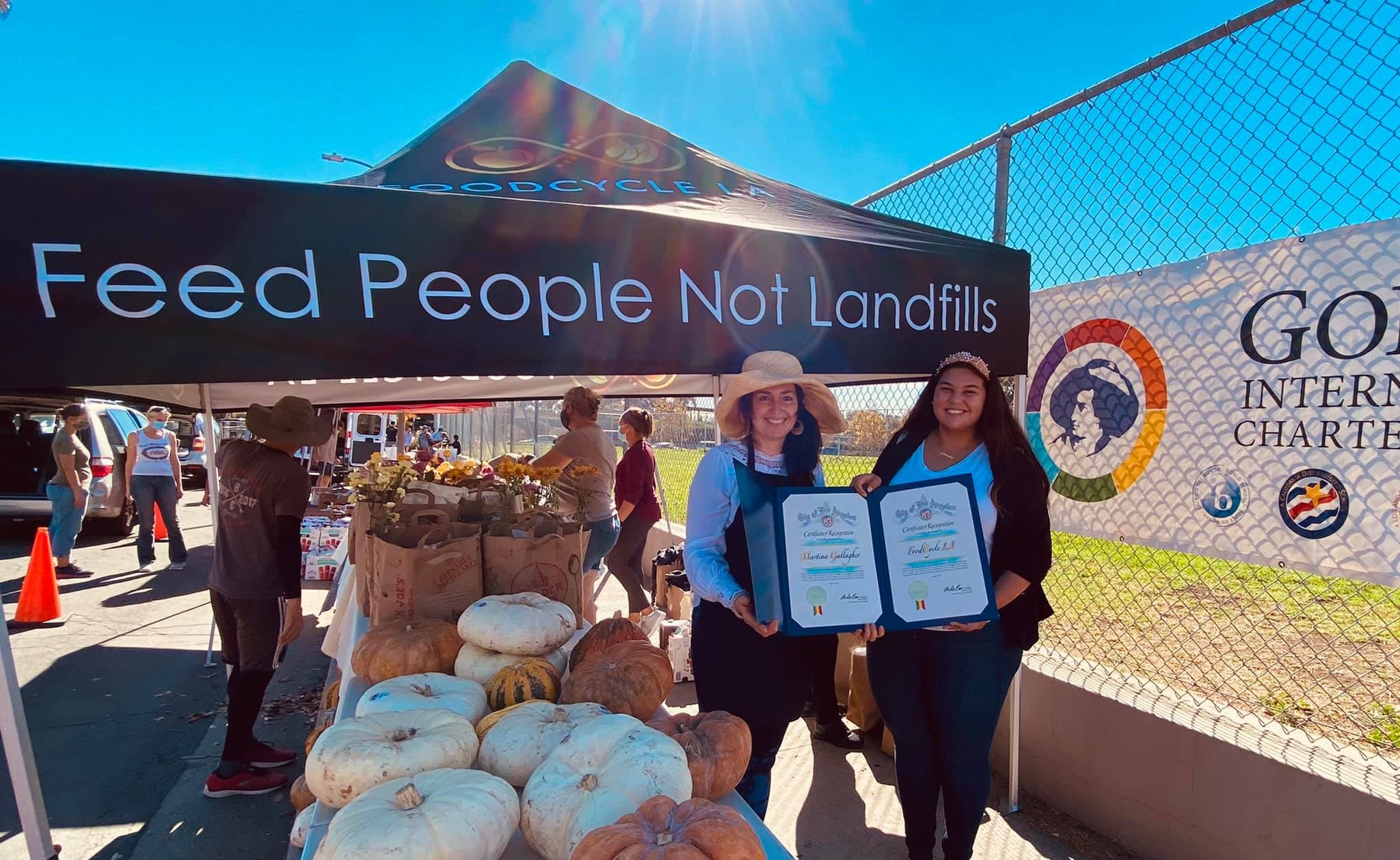
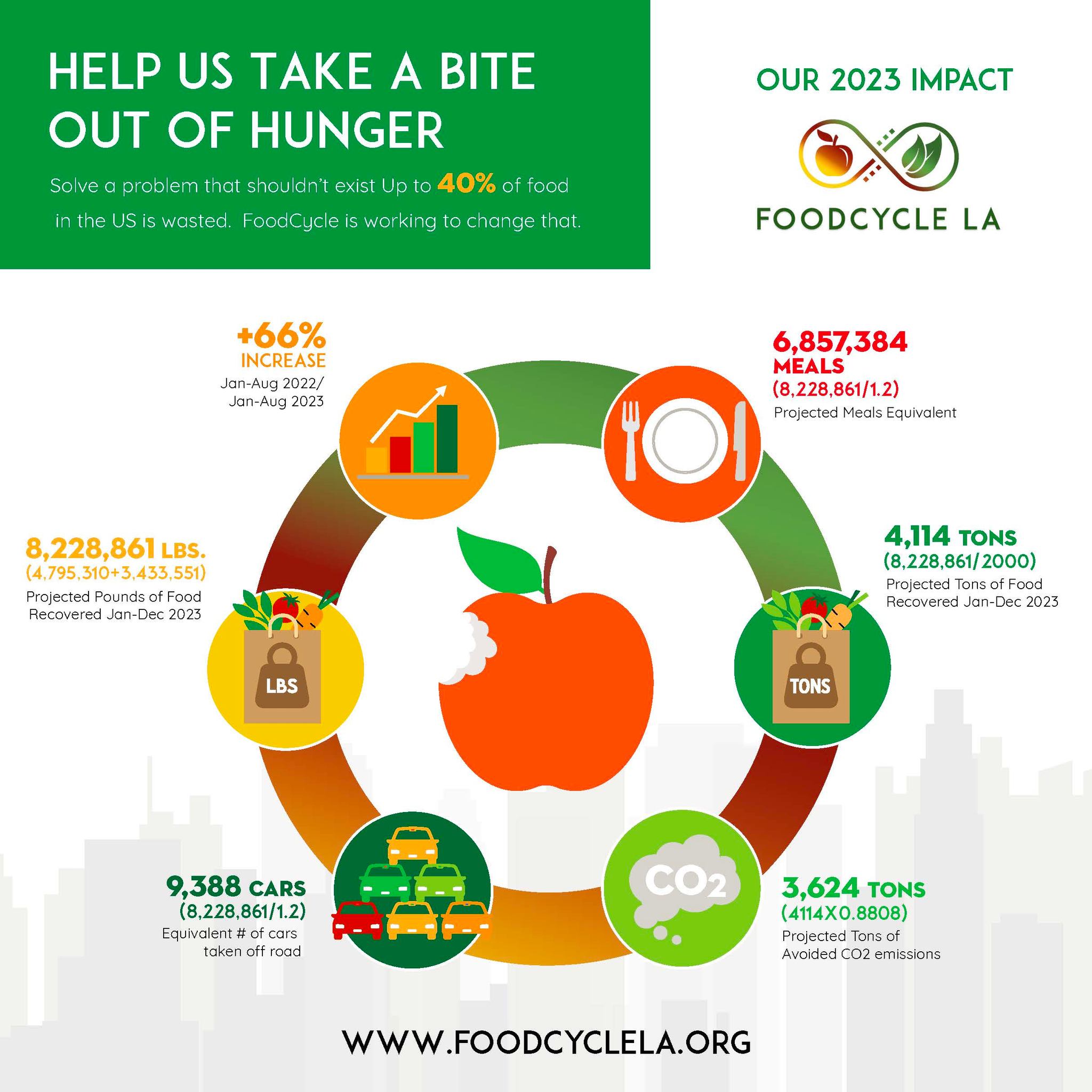
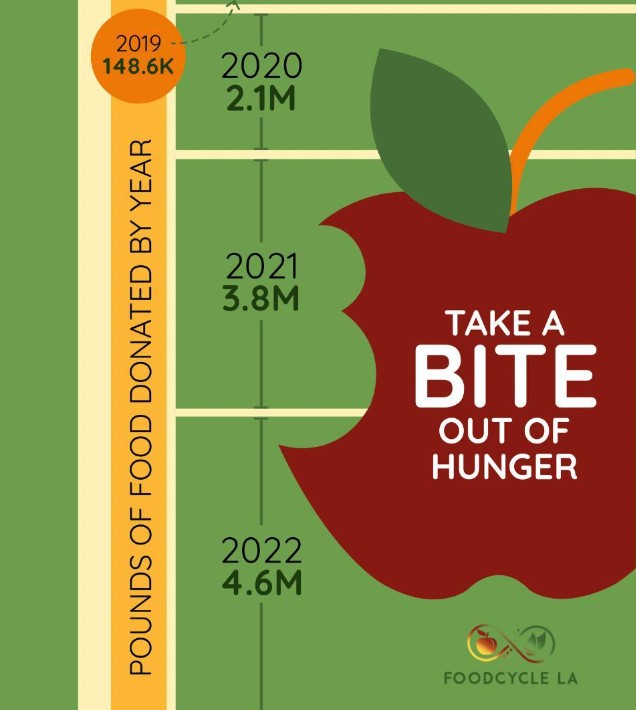
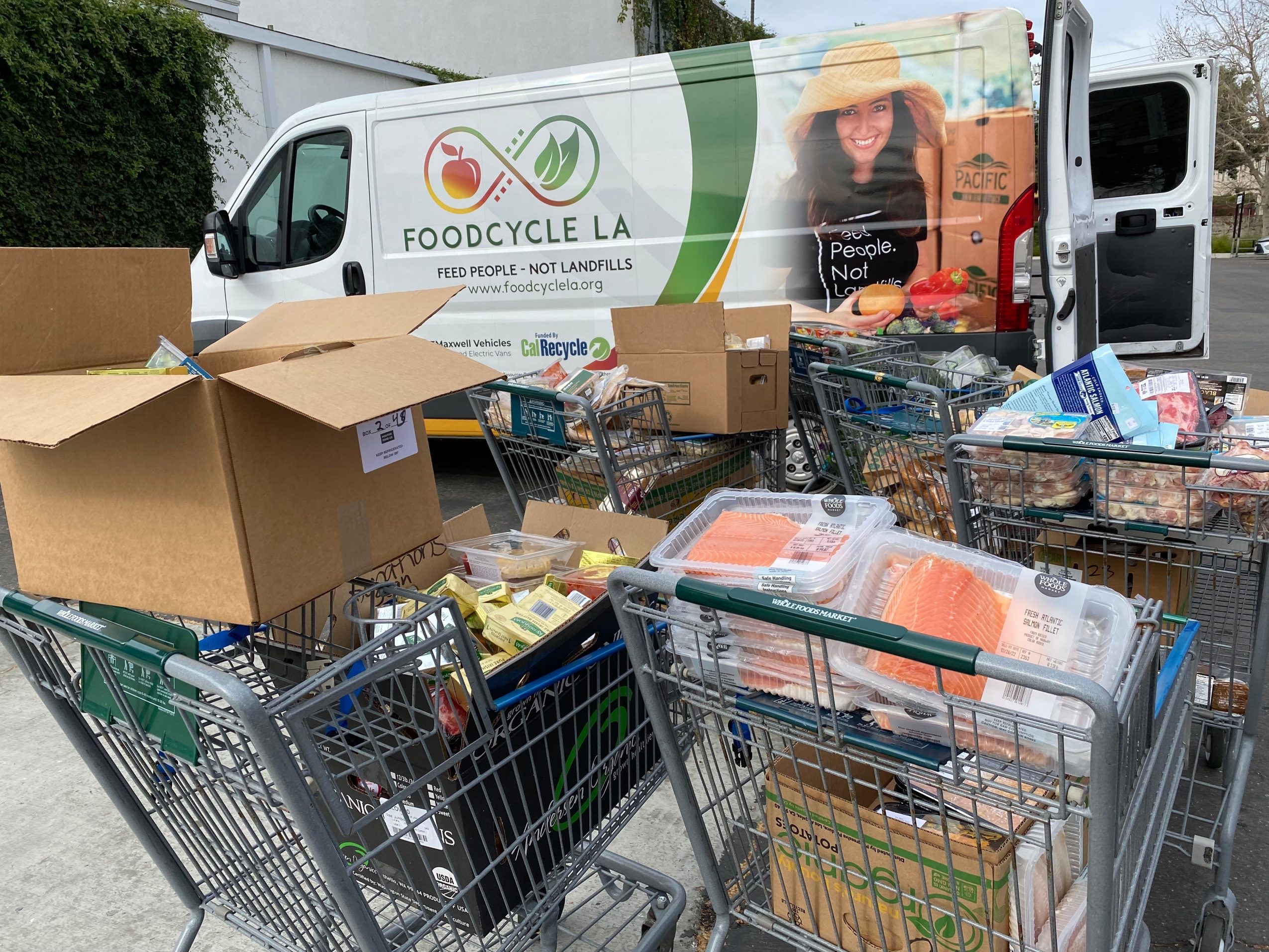
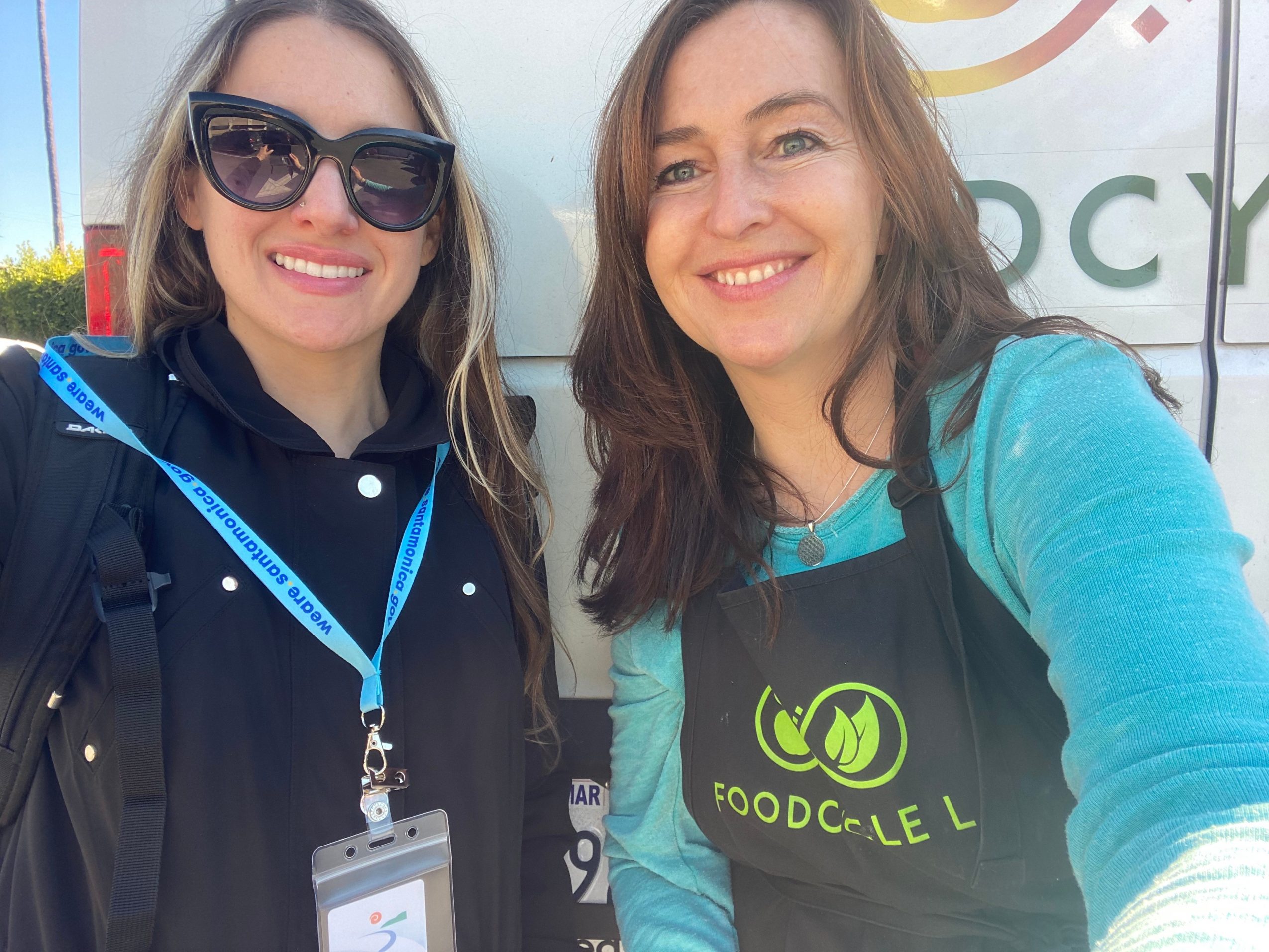
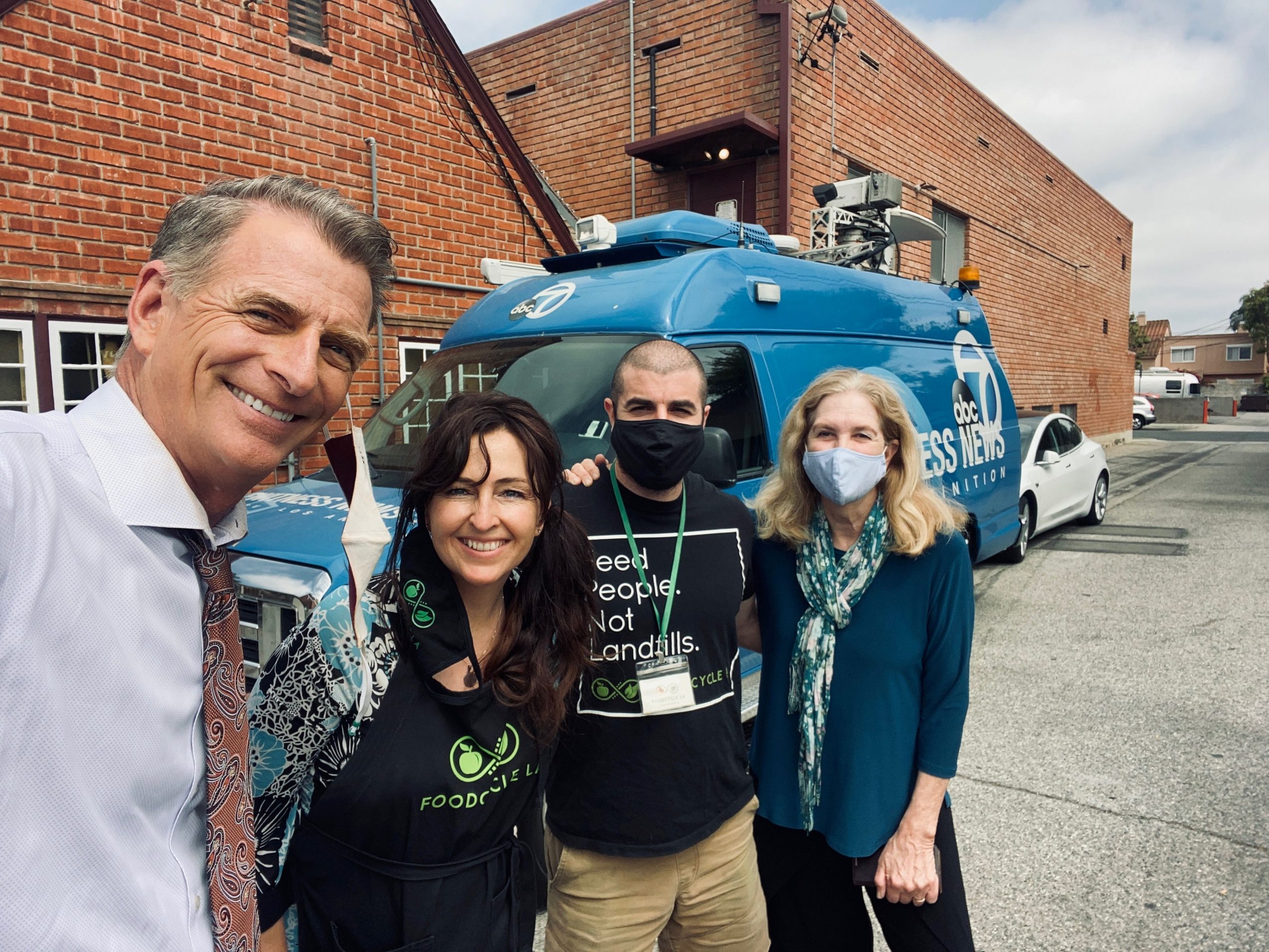
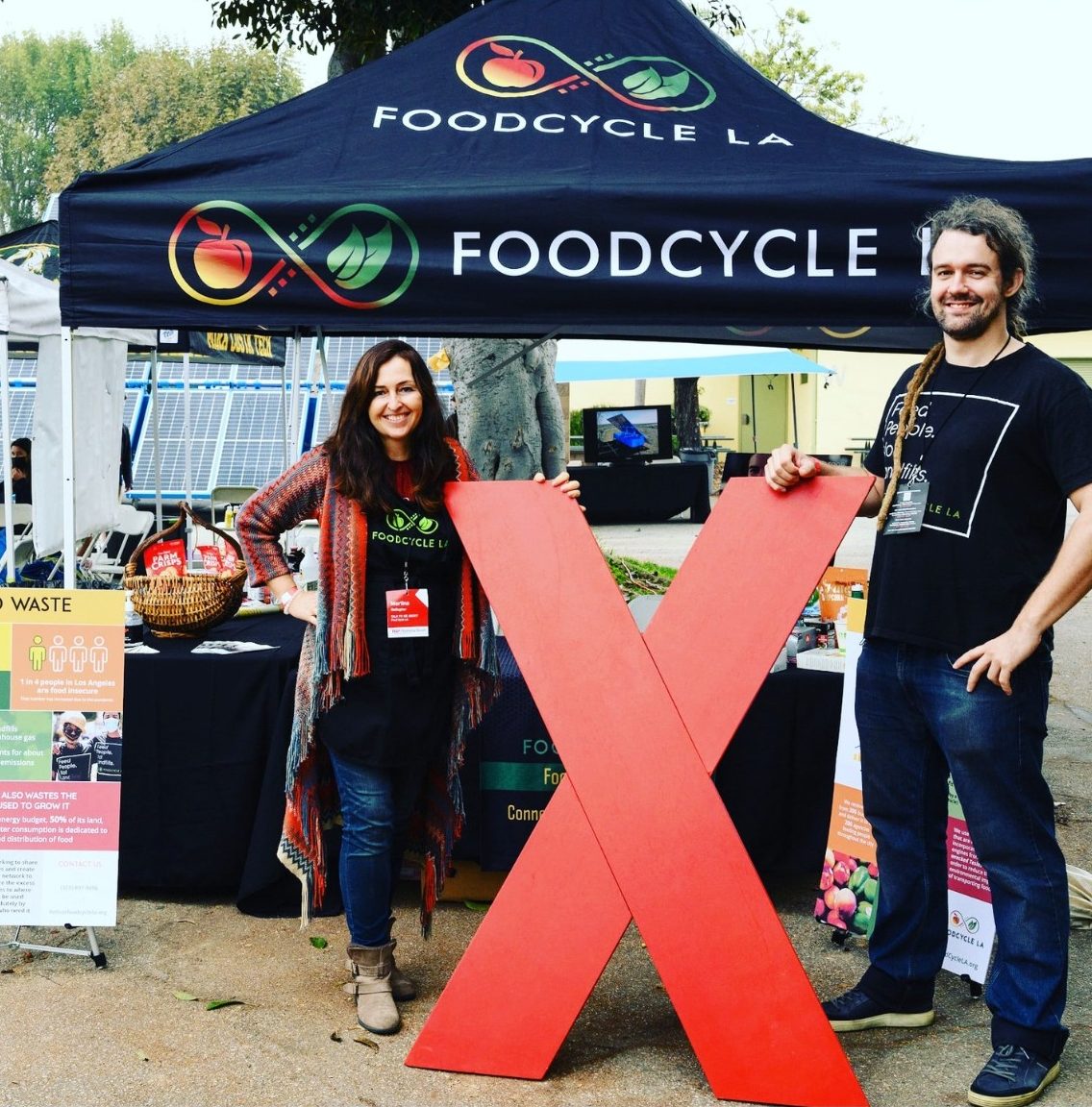
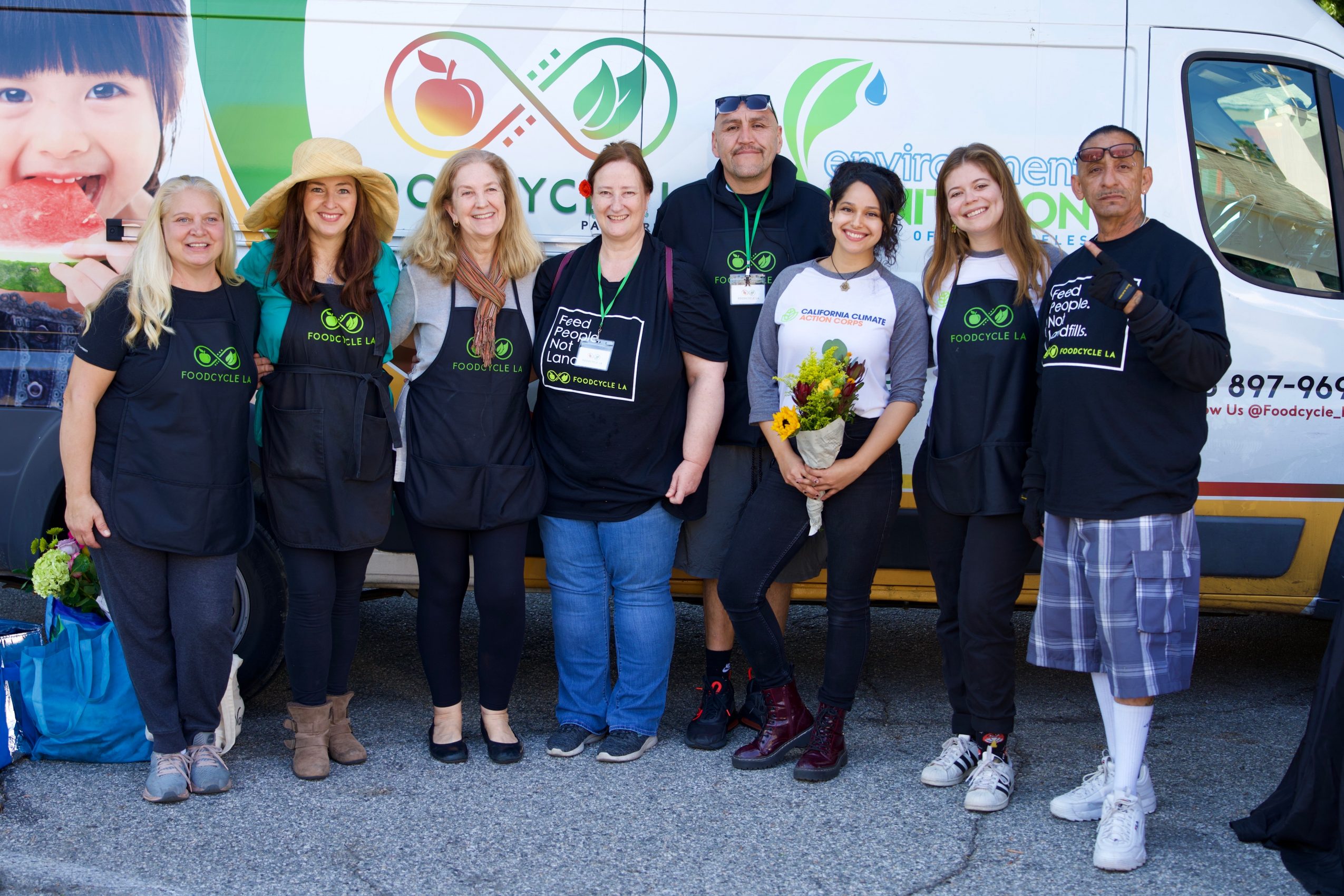 Image Credits
Image Credits
Main photo: RJ Shaughnessy
Photo of FCLA team in front of van and graphics: FCLA volunteers
All others: Martina Gallagher











